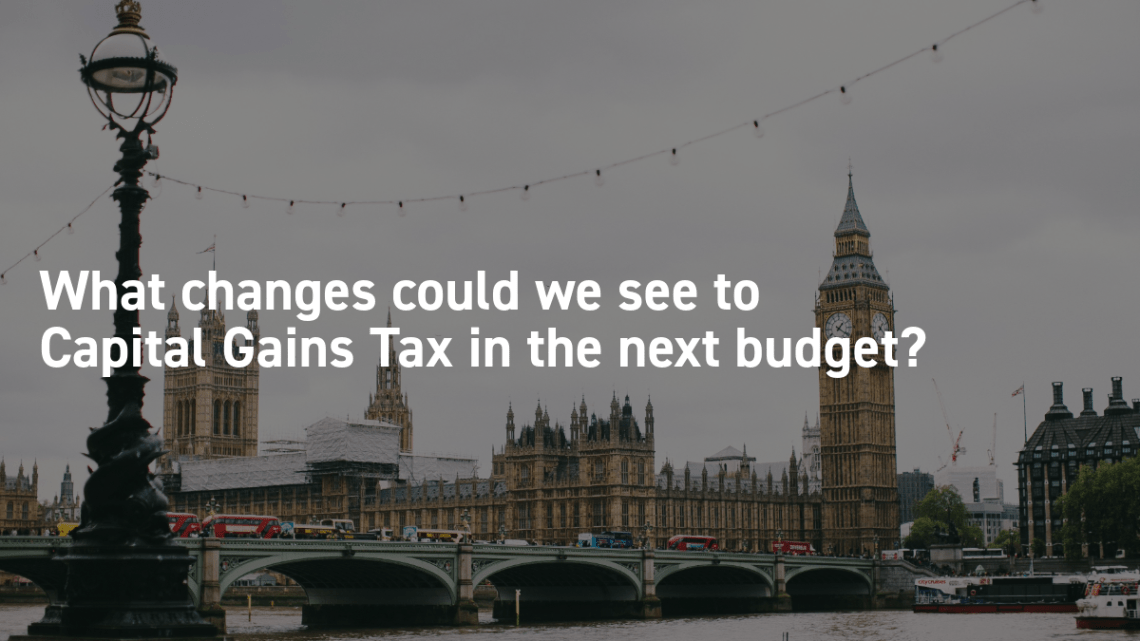
In light of recent remarks from the Prime Minister warning that the budget would be “painful”, there has been much speculation as to what tax rises to expect, including changes to Capital Gains Tax (CGT).
Marc Brinklow, Manager in the Trust Department at HW Fisher says: “We have seen a substantial rise in CGT receipts ahead of the upcoming budget as investors fear the worst over rumoured tax rises. Recent figures reveal £572million was collected in the last quarter to 30 September 2024, a 16.3% increase in the same period in 2023. There is likely to be a further upward trend in rising receipts over the next few months as individuals look to crystallising gains in anticipation of any CGT changes expected to come in from 6 April 2025”.
In this article, Marc looks ahead to the budget on the 30th October and the potential changes to CGT that could be introduced.
What could the changes look like?
Increase in CGT rate
It has been rumoured that the government will increase the higher CGT rate (currently 20%) to align with the higher rate of income tax for individuals (currently 45%). Although a rate increase could raise more revenue for the government, it is worth noting that CGT is a voluntary tax. Therefore, any steep increases in tax may discourage taxpayers from realising any gains when the changes come into effect. A more modest increase in the rate, to say 25%, could raise more revenue in the long term as taxpayers will likely not change their plans.
We have seen a recent change for higher and additional taxpayers to the rate of CGT on gains from residential properties, reduced from 28% to 24%. It is suggested that the Chancellor will leave CGT levied on the sale of second homes and buy-to-let properties unchanged because of the negative impact on the property market.
Abolishing the annual exemption
The annual CGT exemption, currently at £3,000 for individuals (£1,500 for trusts), would be a simple relief to reduce or even abolish with little impact on the taxpayer. This would allow the government to raise additional funds, while keeping the CGT rate the same, therefore sticking to their manifesto pledges not to raise taxes.
Reforms to CGT reliefs
Business Asset Disposal Relief (BADR) is currently available on the disposal of qualifying lifetime gains of qualifying assets up to the value of £1million. These gains are subject to the lower CGT rate of 10%, rather than the 20% rate. We have previously seen changes to the lifetime total (which was originally capped at £10million), so the government might consider a further reduction of the current £1million limit which would be an easy way to raise more taxes.
Meanwhile, holdover relief can apply on the gifts of business assets, with no CGT payable until the donee disposes of the asset. The Chancellor may be considering how this operates and whether the overall tax impact is significant enough to make changes to the tax treatment.
Removal of CGT uplift on death
The government could be considering a reform to the market value uplift on assets that are held at death. Currently, this tax treatment wipes out any taxable gains on an immediate sale of that asset by the executors of the estate or the beneficiaries.
However, by removing the CGT uplift on death, the CGT base cost would be the cost of when the asset was originally purchased by the deceased. As a result, CGT will be payable by the beneficiaries or the executors of the estate on disposals (in addition to IHT payable at 40%).
When could these potential changes come into effect?
Budget tax announcements typically take effect the following 6 April. However, the possibility of any changes coming into force from midnight on budget day cannot been ruled out.
Marc adds: “The proposed changes are not guaranteed to be implemented; however, it is worth reviewing your financial position to mitigate the possible CGT impact, especially for higher and additional rate taxpayers. Any decision to trigger chargeable gains prior to any rule changes taking affect would be a calculated risk based on the assumption that CGT rates will increase, and reliefs will either be amended or abolished.”
If you would like to speak to one of our experts about Capital Gains Tax planning, you can get in touch with our tax team here.
We’d love to hear from you. To book an appointment or to find out more about our services: